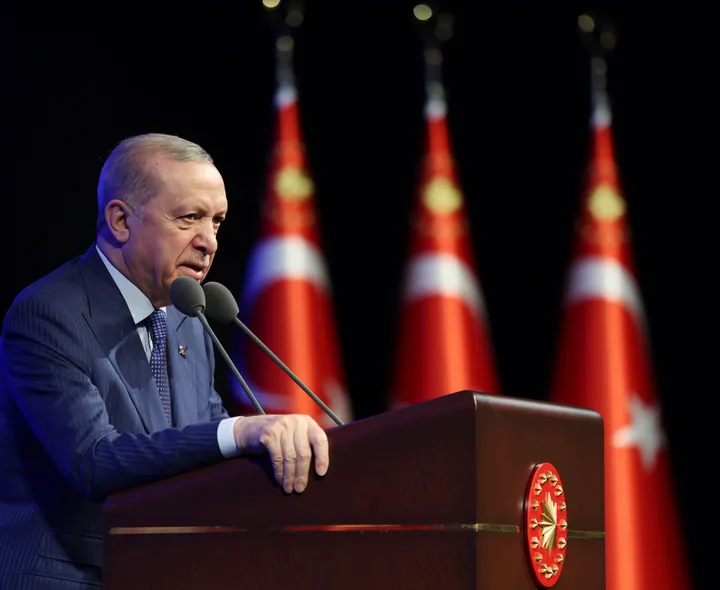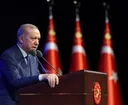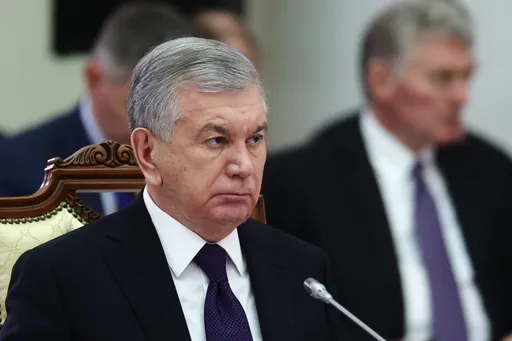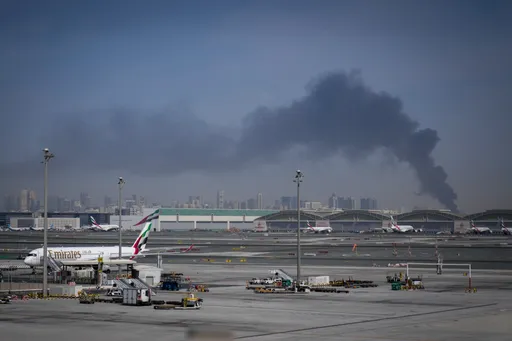Four years ago, on July 15, Turkey found itself in dire straits when a section of its army colluded with the Fetullah Terror Organization (FETO) and tried to topple the country's elected government with a bloody coup attempt.
In view of Turkey’s long, complicated and difficult historical journey, experts say that if the FETO, a group led by Fetullah Gulen — an enigmatic movement with murky international ties to states like the US — had succeeded, the country would have been reduced to a vassal state serving Western political interests.
More than 250 people were killed, and thousands more were wounded on the fateful date of July 15. The group’s leader, Fetullah Gulen, continues today to evade justice, living as he does under US protection in the American state of Pennsylvania.
“It’s not about infiltrating the country’s judiciary and security forces. It’s about enslaving the state to their own purposes. Like people, the states could also have been enslaved [to certain malicious purposes],” said Avni Ozgurel, a prominent Turkish political analyst.
For decades, the FETO terror group members have infiltrated Turkish state institutions with an aim to control the country’s political, judicial and security structures.
The FETO has long defended a pro-American political vision, and its schools across the globe have operated in political alignment with Washington, according to Ozgurel.
“If they [FETO] had succeeded, they would definitely have turned Turkey into Washington’s backyard. We would be a US pawn, particularly in terms of NATO. In the past, [during the Cold War] people would use the term ‘outpost’ for Turkey. Under their rule, we would have been turned into a bodyguard state for the US,” Ozgurel told TRT World.
Other experts and former officials agree with Ozgurel.
“The FETO originates from outside Turkey. Members, including its overall leader [Fetullah Gulen] and other leaders, are foot soldiers of this external design. In other words, the organisation takes its orders from outside,” said Resat Petek, the former head of the coup inquiry commission, which was set up by the Turkish parliament in the wake of the defeated coup.
“If the coup had succeeded, the FETO would have begun to lead this country according to foreign designs not aligned with Turkey’s political interests,” Petek, who is also a legal expert and served two terms as an MP for the governing AK Party, told TRT World.
What would have happened to Turkey’s foreign policy?
“Turkey would have become part of a US-led Gulf-Egypt alliance, should the coup have succeeded,” said Ozgurel, directly referring to the moment when US President Donald Trump, Egypt’s Abdel Fattah al Sisi and Saudi King Salman all touched a mysterious glowing orb in May 2017 during a meeting in Riyadh.
The Saudi and UAE-led Gulf alliance, along with Egypt’s putschist General Sisi, who is backed by Israel and the US, has supported autocratic rule across the Middle East. The UAE-Saudi alliance has launched a deadly war in Yemen, leading to horrendous casualties.
The alliance also leaves the Palestinian liberation movement alone against Israel. It backs Trump’s Deal of the Century, which recognises Jerusalem as the capital of Israel and leaves Palestine’s ambitions of realising its own state distant and more elusive than ever.
The UAE has also reportedly backed the July 15 coup plotters.
The Saudi-UAE alliance, along with Egypt’s Sisi, also supports warlord Khalifa Haftar in Libya over the UN-recognised Government of National Accord (GNA), which is militarily and politically backed by Turkey.
Ozgurel says Turkey’s comprehensive foreign policy, from Libya in the Eastern Mediterranean, to Somalia in the Horn of Africa across Africa, may have all been impossible if the plotters’ aim that day had been realised.
“Forget our current powerful naval presence in the Eastern Mediterranean, they [Western states led by the US] would not let us touch Africa. States like France are still baffled by our presence in the Eastern Mediterranean. ‘What are these guys [the Turks] doing here? How do they dare come this far?’ they question.”
At present, all these current, daring operations — from the Eastern Mediterranean, to Syria and Iraq — have been conducted by different units of the Turkish Armed Forces, which believe its glorious history harks back to Mete Khan or Modu Chanyu, the founder of the Hunnic Empire, a Turkic-origin state established in Central Asia and parts of current China in 209 BCE.
“If the coup had succeeded, the name [of Turkish Armed Forces] would not have changed. But in practice, it would have been the Fetullah Armed Forces,” says Ozgurel.
“If we go back to July 15 and listen to some of the recordings of the communication between the air and land units of coup plotters, people will see what I mean. ‘Sure brother [abi in Turkish],’ says the pro-FETO pilot to his land-force interlocutor when a superior demands the bombing of the parliament in Ankara.”
In standard Turkish military jargon, the word brother is not usually seen in this sort of communication — its use, in fact, could be read as a sign of disrespect to superiors. When someone senior orders his or her subordinates, the standard reply should be “Yes, sir!”
The word ‘brother’ is prevalent in Gulen's cult circles. Ozgurel sees its use in this scenario, during the coup, as a definitive sign that they consider themselves more a part of a religious cult than a part of the Turkish military.
“He [the FETO pilot] has no serious connection with the Turkish Armed Forces. Rather, he has the essential connection with his superior brother,” says Ozgurel.
Turkey’s disintegration project
“Considering the fact that they exploit people’s religious sentiment, they would have dragged Turkey into a process of disintegration, where the country would have turned into a typical Middle Eastern state, conjuring up emotions of hatred and revenge, and where endless internal struggles would have ruled over all other political considerations,” views Petek, who also authored “Puppet”, a book on the workings and wrongdoings of the FETO terror group.
If the coup had been achieved as planned, Ozgurel also suggests Turkey would have found itself in a more passive situation in both Syria and Iraq. However, since the attempt, Ankara has not hesitated in conducting large-scale cross border operations in order to eradicate Daesh, the PKK and PKK-linked groups in both these countries.
The PKK, which is recognised a terrorist organisation by Turkey, the EU, the US and NATO, has launched over a three decade-long terror campaign against Ankara, leading to the deaths of tens of thousands of people.
“If the attempted coup had succeeded, Turkey could not have opposed the composition of an artificial satellite state in the Middle East,” says Ozgurel, referring to a possible independent Kurdish state, covering parts of northern Iraq and Syria.
“In northern Syria, Turkey would have been forced to accept whatever had come from the US,” the analyst opined.
In 2015, Washington formed the Syrian Democratic Forces (SDF) in the north of the country. The leading group in the SDF is the YPG, the Syrian wing of the PKK — Washington claims that it formed the SDF in order to fight Daesh.
The US has enabled the group to claim one third of Syria, which includes the country’s two biggest dams and most of its oil fields, gravely endangering Turkey’s border security.
The UAE-Saudi Gulf alliance, along with Egypt, supports the YPG.
Until Turkey’s operations in 2016, 2018 and most recently in 2019, the YPG had controlled much of the border Syria has with Turkey. But after the effective operations, the presence of the YPG has been reduced there.
“We saw that the FETO was supporting a possible invasion of Turkey, which would have launched from the country’s southern borders,” said Petek, the former head of the coup inquiry commission, referring to Western-backed YPG/PKK designs in northern Syria and Iraq.
“If they had succeeded — God forbids — on July 15, an invasion of this kind may have been allowed to occur, starting from Turkey’s Syria and Iraq borders,” Petek viewed.
Both Ozgurel and Petek believe that if the coup had not fallen through, Gulen would have been invited to Turkey by the coup’s leaders. He would not, however, have taken any official position as state leader, preferring to play his game behind the scenes as he has always been known to do in his life, Ozgurel says.
“In reality, the US would have been behind him,” Ozgurel said.
“If you look at the expansion of FETO schools across Central Asia and the Islamic world, you would conclude that the US has found, through the group, a perfect means to enter those areas,” Ozgurel said.
Turkey was not the only country to have escaped danger with the failure of the coup, but the Islamic world as a whole, says Ozgurel. The US has encouraged the group to create a new version of Islam around the world, a so-called moderate version of the religion, one that is more aligned with Washington’s interests, rather than Muslim ones, adds Ozgurel.
Erdogan factor
In the end, according to Ozgurel, the coup plotters’ downfall was Turkish President Recep Tayyip Erdogan.
“Erdogan’s tenacity and character was the most decisive factor on July 15. He did not surrender to Necmettin Erbakan. How could he surrender to Fetullah Gulen?”
Erbakan, who passed away in 2011, was Erdogan’s former mentor, establishing the religiously-minded Milli Gorus (National View) movement in the late 1960s. Erdogan eventually broke up with Erbakan over political differences.
“They [the coup plotters] hit the wrong man [Erdogan],” Ozgurel concluded.























